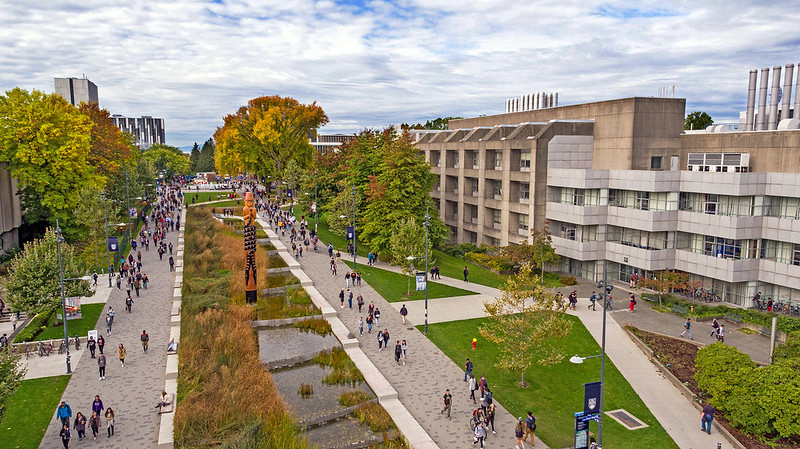Making a difference starts with a different kind of thinking. This stream invites students to ask tough questions, think together openly and critically, and engage with the world through research and discussion.
Students will learn about government policy, economic organization, and social justice as they encounter the processes, systems, institutions, and values that shape our societies. This stream is loosely modelled on a successful undergraduate program at the University of Oxford.
The CAP program provided an excellent transition from high school to university and provided me with a skills toolkit to succeed at UBC. My ASTU class (now called CAP 100/101) with Dr. McNeill prepared me to tackle academic writing and research. I learned how to ask effective questions and the critical thinking skills I gained I was able to apply in all my research papers.
Courses: Term One
In the first term, students will enrol in CAP 100 (their writing course), Economics, and Political Science. In CAP 100, students will study how politics, economics, and philosophy intersect, as well as learn about the features of academic writing in a scholarly setting. The introduction to politics class will set the foundation for the understanding of politics in future political science and other related courses. The study of microeconomics will also introduce students to the economic theories behind the fundamental relationship of demand and supply in our economy.
This course is an introduction to academic scholarship with a focus on scholarly writing and reading. This course provides an interdisciplinary foundation for academic writing and related research communicative practices within an interactive learning environment. Students will choose one out of four different sections (P01/P02/P03/P04), based on their scheduling needs and academic interests.
TTh 9:30-11
This course on the principles of microeconomics will study Canadian policy and institutions concerning the economics of markets and market behaviour, prices and costs, exchange and trade, competition and monopoly, distribution of income. This introductory course will introduce students to “the economic way of thinking”, a general framework that will not only help students better understand the world around us but will also help students make better decisions in both personal life and professional career.
MWF 9-10
Course description coming soon.
Courses: Term Two
In the second term, students will enrol in Philosophy, Economics, and Political Science. An introduction to philosophy will develop critical thinking and logical reasoning, as well as establish the most well-known philosophies behind issues such as morality, ethics, and justice. Moving from microeconomics to macroeconomics, students will study economic frameworks that we use to make sense of economics at a larger societal or national level. Students will also learn to apply the concepts learnt in the first term to the context of Canadian politics.
MWF 10-11
This philosophy course aims to develop ethical thinking skills through introducing a number of value and moral theories. Students will learn to identify ethically relevant considerations, to take into account the interests of all stakeholders, and to make ethically-informed decisions in their lives. The topics discussed in this course will also give students opportunities to use their own lived experiences to critique moral philosophy.
TTh 9:30-11
This course on the principles of macroeconomics examines the economics of growth and business cycles, national income accounting, interest and exchange rates, money and banking, and the balance of trade. This course will help develop skills of economic analysis and critical thinking. By the end of the course, students will have gained some insight into how an economy functions and into some of the policy issues that are the subject of serious debate.
MWF 11-12
The course examines the basic ideas on which the Canadian political system is founded, the institutions that structure politics, and the actors who work within these institutions. We will emphasize the constitutional framework of the Canadian government and the role of the judiciary and the Charter of Rights in shaping the country. We will also engage issues at the forefront of politics in Canada, such as Indigenous rights and gender politics. Students should be equipped to better understand the Canadian political system and engage in our democracy as active citizens and participants.
Sample Projects
Article Review
Students are given a choice of topics on which to write a short paper. They are asked to choose one article that they will use for the short paper and to write a separate article review on it. This assignment is designed to aid the student in choosing appropriate materials for research papers, understand the key arguments from the material, and succinctly communicate that argument.
Literature Review
Students choose a research topic (based on the focus of their section of ASTU 101, now CAP 100), and then write a scholarly literature review. Students learn to identify major abstractions (or concepts), find appropriate secondary sources using the library databases, place academics in discussion with one another, and take a position within this conversation.
